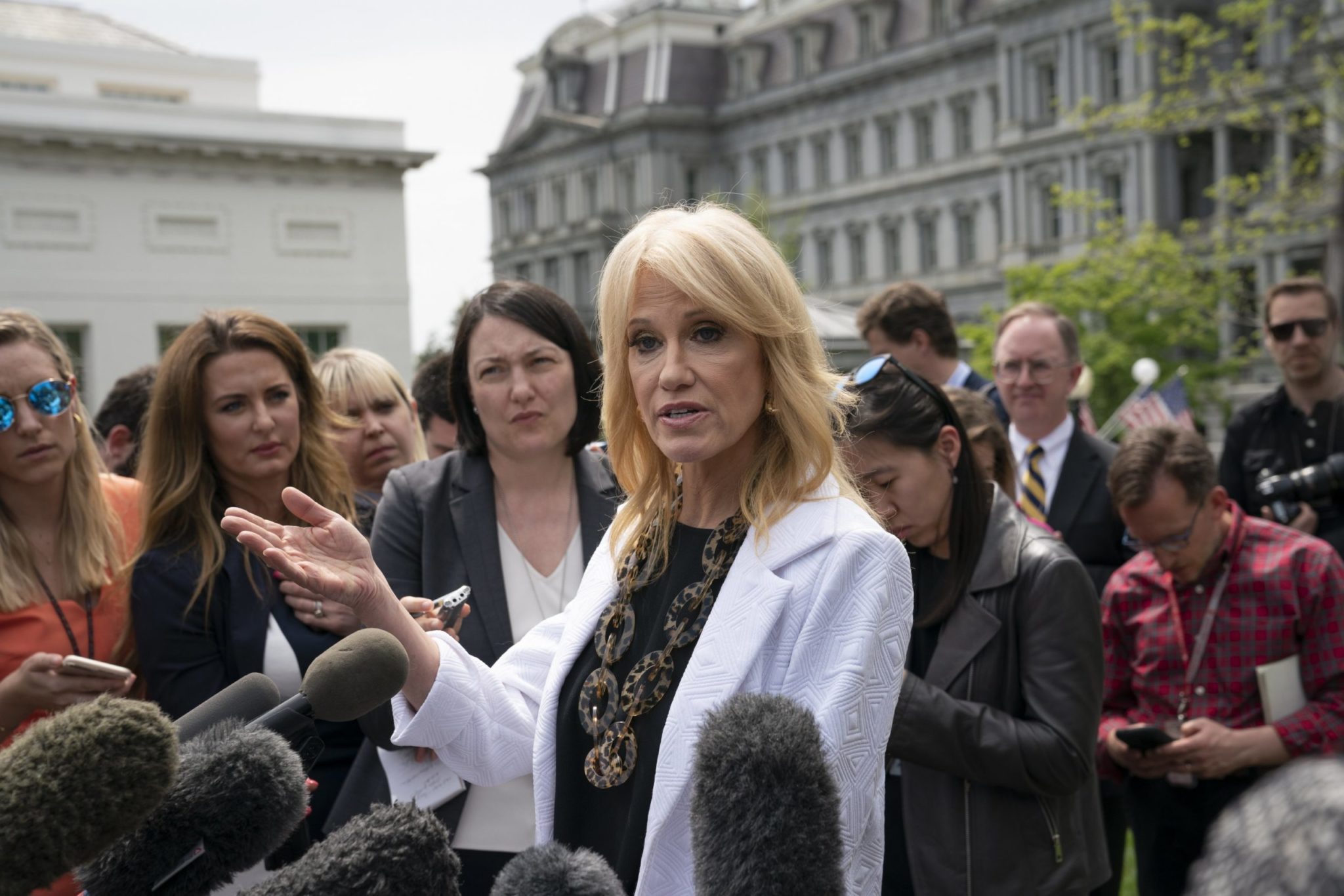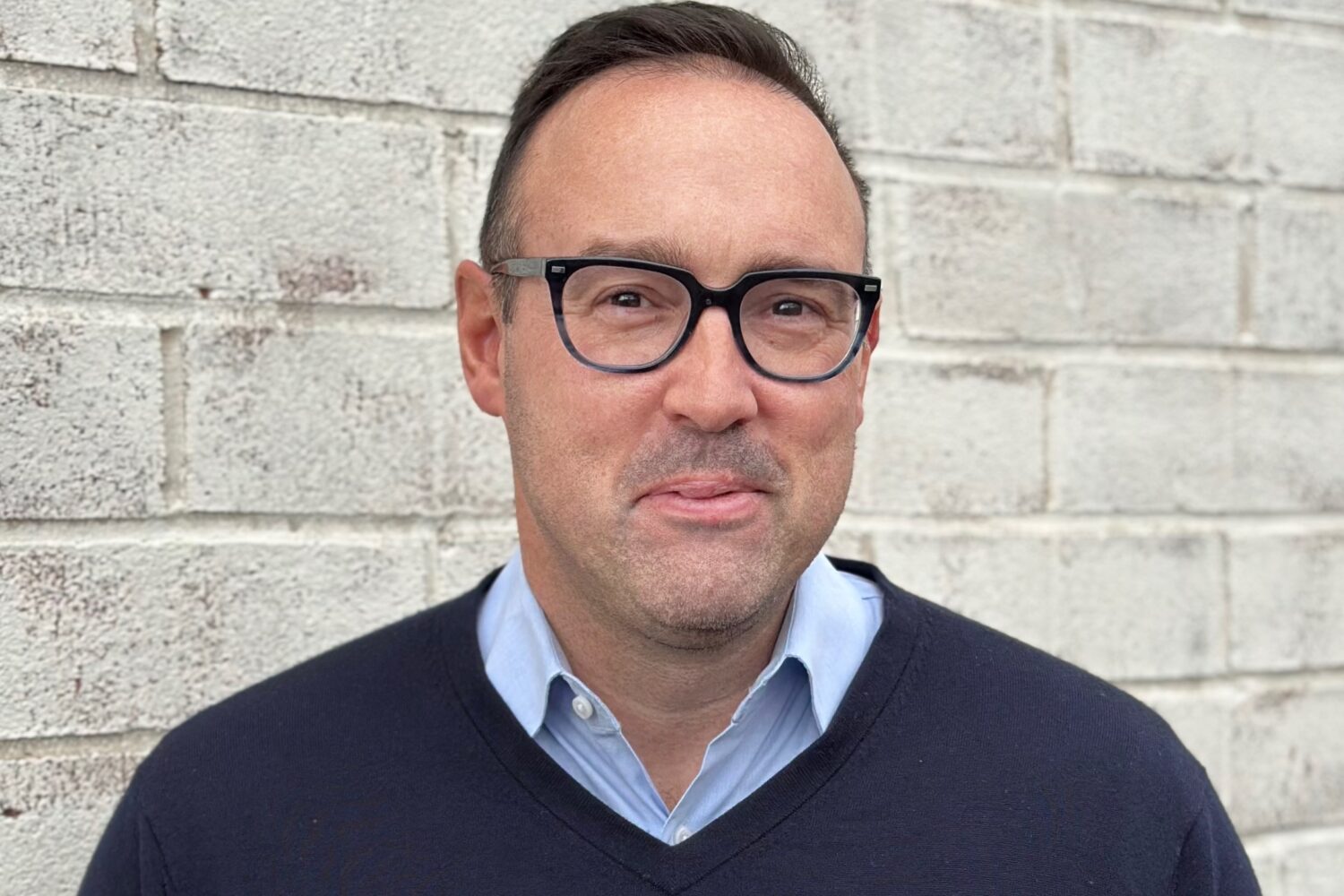“We’re accepting apologies today,” Kellyanne Conway told reporters Thursday after the Department of Justice made Robert Mueller‘s report public. “Intent has never mattered to any of you, respectfully, throughout this whole thing,” she said. “And so intent matters and I know you want to cherry-pick one line here or one line there because the big lie that you’ve let fly for two years, it’s over folks.”
Perhaps reporters might deserve an apology as well. Mueller’s report details many incidents in which President Trump, members of his administration, or his circle lied to the press before and during Mueller’s investigation. Here’s a non-exhaustive list of the times it outlines ways that Trump insiders manhandled the truth when speaking to to reporters.
• Michael Flynn’s discussions with Sergey Kislyak
Several days before Donald Trump’s inauguration, David Ignatius publishes “Why did Obama dawdle on Russia’s hacking?” in the Washington Post. Trump calls Reince Priebus and asks, “What the hell is this all about?” Michael Flynn tells Mueller Priebus told him he needed to “kill the story.” Flynn tells KT McFarland to call Ignatius “and inform him that no discussion of sanctions had occurred.” McFarland “made the call as Flynn had requested although she knew she was providing false information, and the Washington Post updated the column to reflect that a ‘Trump official’ had denied that Flynn and Kislyak discussed sanctions.” As the month progressed, Priebus, Mike Pence, and Sean Spicer gave interviews and “denied that Flynn and Kislyak had discussed sanctions, basing those denials on their conversations with Flynn.”
• Trump’s interactions with James Comey
After James Comey‘s account of his solo dinner with Trump in January 2017 became public, “the President and his advisors disputed that he had asked for Comey’s loyalty.” Trump “also indicated that he had not invited Comey to dinner, telling a reporter that he thought Comey had ‘asked for the dinner’ because ‘he wanted to stay on.’” But, the report says, “substantial evidence corroborates Comey’s account of the dinner invitation and the request for loyalty.”
Likewise, after Comey’s account of his February 14, 2017, meeting in the Oval Office, Trump told “the New York Times that he did not ‘shoo other people out of the room’ when he talked to Comey and that he did not remember having a one-on-one conversation with Comey. The President also publicly denied that he had asked Comey to ‘let []Flynn go’ or otherwise communicated that Comey should drop the investigation of Flynn….Despite those denials, substantial evidence corroborates Comey’s account.”
• Comey’s firing
On May 9, Trump called Chris Christie and said “he was getting ‘killed’ in the press over Corney’s termination.” The White House Press Office called DOJ that evening “and said the White House wanted to put out a statement saying that it was Rosenstein’s idea to fire Comey.” Rod Rosenstein declined, but Sean Spicer gave a press conference that evening and said “”It was all [Rosenstein]. No one from the White House. It was a DOJ decision.”
Sarah Sanders gave a press conference on May 10 and said Trump, “the Department of Justice, and bipartisan members of Congress had lost confidence in Comey, ‘[a]nd most importantly, the rank and file of the FBI had lost confidence’” in him. She told reporters Rosenstein acted “on his own” both to review Comey and to share his concerns about the FBI director with the President. Sanders later tells Mueller her reference to “countless members of the FBI” was a “slip of the tongue,” that it was “made ‘in the heat of the moment’” and “was not founded on anything.”
• Trump’s intention to fire Mueller
Shortly after telling aides he was thinking of firing Mueller, “Sanders asked the President” what to tell reporters. “The President dictated an answer, which Sanders delivered,” telling reporters in part, Trump ‘has no intention’ of firing Mueller. In fact, three weeks earlier, Trump told staff he was considering “knocking out Mueller.” The same day he dictated his statement to Sanders, Trump’s personal lawyer privately accused Mueller of conflicts of interest; and four days later, Trump twice asked the White House counsel, Don McGahn, to fire Mueller, instructing him: “”Call Rod, tell Rod that Mueller has conflicts and can’t be the Special Counsel.”
• Trump ordered Don McGahn to get rid of Mueller
In January 2018, Trump calls a New York Times report that he ordered McGahn to dismiss Mueller “Fake news.” His personal lawyer then calls McGahn and asks him “to put out a statement denying that he had been asked to tire the Special Counsel and that he had threatened to quit in protest.” McGahn declines on this and several subsequent occasions where various folks put the screws to him.
• Trump Tower Moscow
In January 2017, the report says, Michael Cohen tells the New York Times “the Trump Tower Moscow deal was not feasible and had ended in January 2016.” Cohen describes his comments to Mueller’s office as a “‘script’ or talking points he had developed with President-Elect Trump and others to dismiss the idea of a substantial connection between Trump and Russia.” Later, as Cohen prepares a statement for Congress, he repeats to the Washington Post “the false story that negotiations for the deal ceased in January 2016.”
• Paul Manafort
Speaking to Jake Tapper, Rudy Giuliani “rejected the suggestion that his and the President’s comments could signal to defendants that they should not cooperate in a criminal prosecution because a pardon might follow, saying the comments were “certainly not intended that way.”Meanwhile, Manafort told Gates that he had talked to the President’s personal counsel and they were “going to take care of us.” Manafort told Rick Gates “it was stupid to plead” because “he had been in touch with the President’s personal counsel,” telling Gates “they should ‘sit tight’ and ‘we’ll be taken care of.’”
• Donald Trump Jr.’s statement about the Trump Tower meeting
On a flight back from a G20 meeting in Germany, Trump edits a statement from his son Donald Trump Jr., who said he “was asked to have a meeting by an acquaintance I knew from the 2013 Miss Universe pageant with an individual who I was told might have information helpful to the campaign.” Trump directs Hope Hicks to “say only that Trump Jr. took a brief meeting and it was about Russian adoption.” Trump Jr. manages to get the word “primarily” in the statement. Concurrently, Trump personal legal team spokesperson Mark Corallo was working with Sinclair property Circa News on a story that “questioned whether Democratic operatives had arranged the June 9 meeting to create the appearance of improper connections between Russia and Trump family members.” After the New York Times reports Trump had gotten involved in Trump Jr.’s statement, “Over the next several days, the President’s personal counsel repeatedly and inaccurately denied that the President played any role in drafting Trump Jr.’s statement.” Sanders told reporters Trump “‘certainly didn’t dictate’ the statement, but that ‘he weighed in, offered suggestions like any father would do.’” Trump’s lawyer later told Mueller’s office he had in fact dictated the statement, but the New York Times was not a “high tribunal of judges.”



















